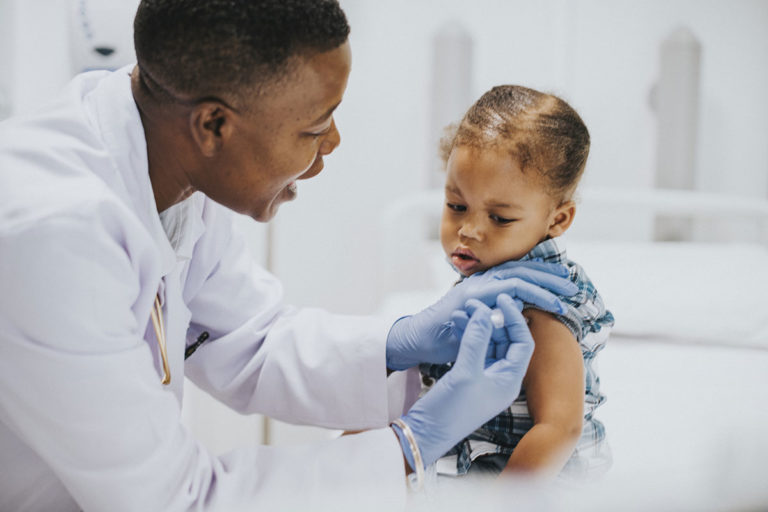When my sons turned 15 months old I recall becoming rather emotional when I held them while a nurse administered their three vaccines each. In hindsight, my teary eyes were the result of a mix of the boys’ recognition that vaccines are painful and the fear that many parents have nowadays: could I be harming my child? These were not rational thoughts for me as physician and a scientist. However, it made me aware of the anxiety that other non-physician parents must experience when they place their trust in medicine.
April 27 is the beginning of Nation Infant Immunization Week (https://www.cdc.gov/vaccines/events/niiw/index.html).Admittedly, the profession of medicine has not reassured the public sufficiently about the safety of vaccines. Many controversial theories about the risks of vaccines have made their way into the mainstream media and eroded the public trust. With each passing theory researchers have countered with scientific evidence that refutes these perceived risks. Unfortunately, as electronic message boards, the internet, and talk shows fill up with horror stories about the risks of vaccines, scientific evidence becomes unconvincing to many rational parents.
So how do we fix this problem? For starters, it is important that parents understand that vaccines help prevent serious diseases that can kill children. Naturally, this generation of parents is unfamiliar with the diseases that vaccines prevent. The relative obscurity of these diseases may allow for a false sense of security. To better understand how vaccines have reduced disease burden consider that as a physician for more than 20 years I have (gladly) never seen measles, diphtheria, paralysis from polio, meningitis from haemophilus or pneumococcus, tetanus, sterility from mumps, and congenital rubella. These were not uncommon and sometimes deadly diseases before the modern vaccination schedule. And they do still exist, unfortunately not just in developing countries any more as with the recent measles outbreaks in 15 states.
Of equal importance, we have to admit that vaccines are not risk-free and do have side effects. Physicians and parents need to discuss these issues honestly and openly. Physicians need to avoid judgmental statements and any appearance of paternalism. Unless solicited, in-depth scientific discussions are probably ineffective. My experience is that most families need only some reassurance about the benefits of vaccines and that in general they are safe. Physicians and parents both should recognize that a team approach based on trust is best. The goal of these discussions should be to fully immunize children.
Parents, myself included, want the best for their children. Pediatricians too. From that common ground we can all work together at keeping your child healthy. For more information about vaccines and the public trust I urge you to read two articles in the medical journal “Pediatirics” Volume 122, Number 1, July 2008, pages 149-153 (http://pediatrics.aappublications.org/cgi/content/full/122/1/149) and pages 224-225 (http://pediatrics.aappublications.org/cgi/content/full/122/1/224-a) or visit http://www.voicesforvaccines.org/.
Carlos Armengol, MD FAAP

